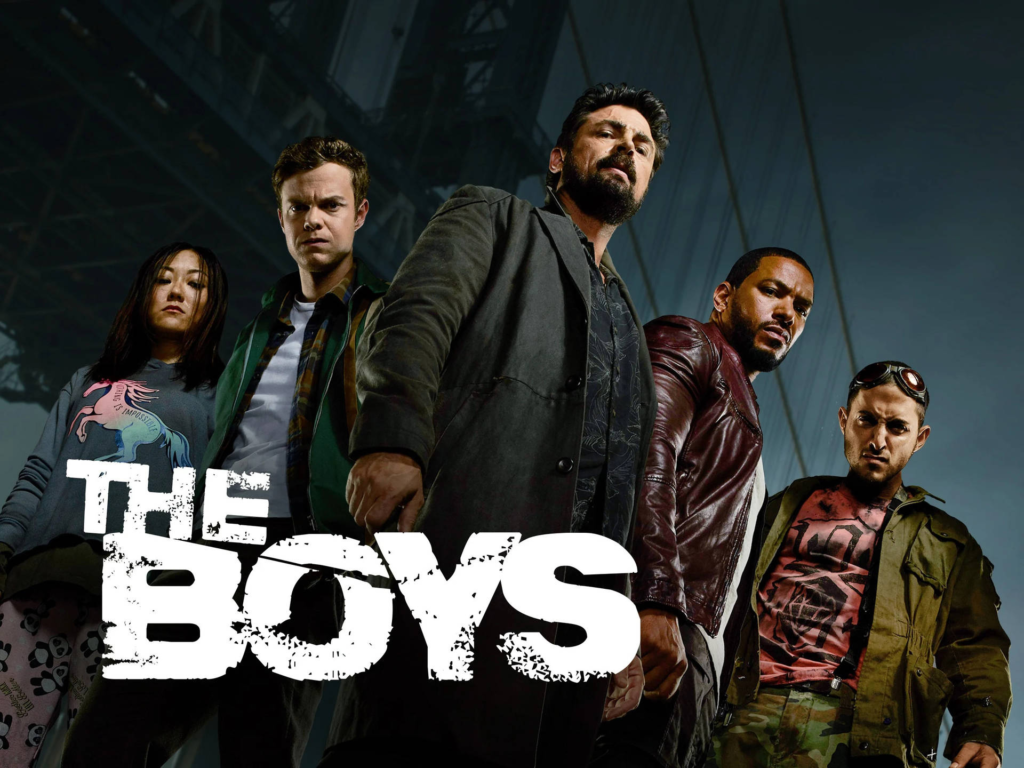Unmasking “The Boys”: A Darkly Satirical Take on Superheroes
“The Boys,” a daring and unconventional television series, thrusts the superhero genre into uncharted territory. Developed by Eric Kripke for Amazon Prime Video, it boldly subverts the traditional superhero narrative. Let’s delve into the twisted world of capes, corruption, and vigilantism.

The Premise
In a universe where superpowered individuals—dubbed “Supes”—are celebrated as heroes, “The Boys” reveals their darker side. These mighty beings, adored like celebrities and wielding political influence, serve Vought International—a powerful corporation that markets and monetizes them. However, beyond their heroic façades, most Supes are corrupt, self-serving, and deeply flawed¹.
The Vigilantes
“The Boys” revolves around an unlikely group of antiheroes:
- Billy Butcher (Karl Urban): The charismatic leader fueled by vengeance against Supes.
- Hughie Campbell (Jack Quaid): A grieving young man seeking retribution after a tragic Supe-related incident.
- The Female (Karen Fukuhara): A mysterious and lethal warrior.
- Mother’s Milk (Laz Alonso): The pragmatic voice of reason.
- Frenchie (Tomer Capone): A skilled inventor and loyal companion.
The Seven: Heroes or Villains?
The Seven, the world’s premier super-team, harbor dark secrets:
- Homelander (Antony Starr): The Superman-like leader, ruthless and manipulative.
- Queen Maeve (Dominique McElligott): A jaded warrior haunted by her past.
- A-Train (Jessie T. Usher): The speedster addicted to Compound V (the source of Supes’ powers).
- The Deep (Chace Crawford): A disgraced aquatic hero with peculiar obsessions.
- Black Noir (Nathan Mitchell): The enigmatic, silent assassin.
The CIA’s Oversight
“The Boys” operate under the watchful eye of the CIA. Their mission: expose Supes’ misdeeds, safeguard humanity, and maintain a precarious moral balance. Their battles are gritty, visceral, and morally ambiguous.
The Dark Humor and Social Critique
The series seamlessly blends action with biting satire. It skewers celebrity culture, corporate greed, and blind hero worship. “The Boys” provocatively questions whether absolute power inevitably corrupts, even when wrapped in spandex.
The Unapologetic Violence
Heads explode, limbs are severed, and collateral damage abounds. “The Boys” fearlessly portrays the consequences of heroism, unafraid to depict the gruesome reality.
The Cinematic Aesthetics
From epic showdowns to intimate character moments, the show’s cinematography captures both the glossy allure of heroism and the seedy underbelly of corruption.
“The Boys” defies conventions, revealing the shadows lurking behind the superhero spotlight. In this world, capes don’t always signify heroism—they may conceal the darkest secrets imaginable.




















